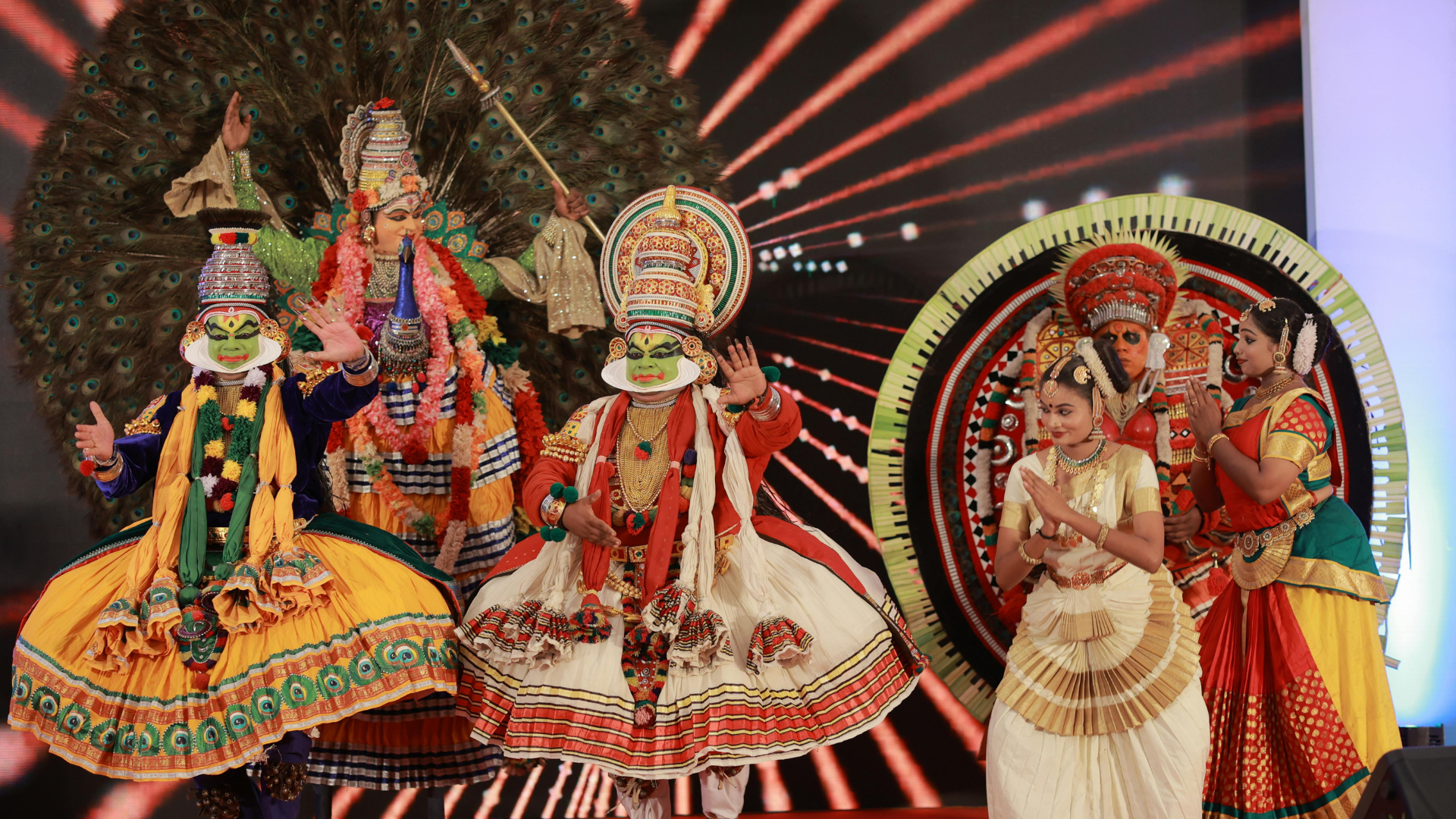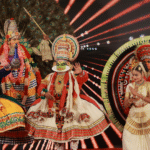Music serves as a profound reflection of cultural identity, acting both as a repository of traditions and a platform for self-expression. Its rhythms, melodies, and lyrics often encapsulate the values, struggles, and stories inherent to a community, thereby shaping how individuals perceive themselves within their cultural context. Through various genres, music not only preserves heritage but also influences contemporary cultural interactions.
As societies evolve, so does their musical landscape, intertwining with factors such as globalization and technological advancements. This dynamic relationship allows music to adapt while still resonating with the core elements of cultural identity. For many, songs evoke memories and emotions tied to their roots, making music a powerful instrument in constructing and affirming a sense of belonging.
Exploring the intersections of music and cultural identity reveals how songs can bridge gaps between generations and foster connections among diverse groups. By understanding this influence, one gains insight into the broader narrative of human experience and the continuous dialogue between individual identity and collective heritage.
The Role Of Music In Shaping Cultural Identity
Music plays a crucial role in defining and expressing cultural identity. It reflects societal values and fosters community connections. The following subsections explore how musical traditions contribute to identity formation, showcase societal norms, and build a sense of community.
Defining Cultural Identity Through Musical Traditions
Musical traditions serve as a lens through which cultural identity is formed and experienced. Specific genres, instruments, and styles are often deeply tied to a community’s history and heritage. For instance, genres like jazz in African American culture or flamenco in Spain are not merely entertainment. They encapsulate stories, struggles, and triumphs inherent to those cultures.
Through traditional songs and rituals, generations pass down values and beliefs. This transmission helps individuals recognize their place within a larger cultural framework. As people engage with these musical forms, they reinforce their connection to their ancestry and cultural heritage.
Music as a Reflection of Societal Values
Music embodies the values and beliefs prevalent within a society. Lyrics often address social issues, political movements, or communal experiences. For example, protest songs throughout history have voiced concerns about injustices and rallied communities together.
The evolution of musical genres often mirrors shifts in societal attitudes. The emergence of hip-hop reflects urban struggles and the quest for identity among marginalized communities. This reciprocal relationship illustrates how music not only reflects societal values but also influences them.
Community Building Through Shared Musicality
Shared musical experiences act as a powerful tool for community building. Events such as concerts, festivals, and jam sessions bring people together, fostering connections. These gatherings enable individuals to bond over their common love for music and the cultural significance it holds.
Music also encourages collaboration and creativity, allowing diverse groups to express their identities collectively. Community choirs, local bands, and dance groups strengthen ties among participants, enhancing their sense of belonging. In this way, music becomes a unifying force that transcends individual differences and nurtures a shared identity.
Musical Genres And Their Influence On Regional And Global Identities
Musical genres play a crucial role in shaping cultural identities at both regional and global levels. They reflect the history, traditions, and social dynamics of communities while also influencing wider cultural trends.
Traditional And Contemporary Music Across Cultures
Traditional music often embodies the cultural heritage of a community. It incorporates regional instruments and storytelling that connect listeners to their ancestry. For instance, African rhythms influence various global music styles, fostering a sense of communal identity.
Contemporary music, in contrast, merges traditional elements with modern influences, appealing to younger generations. This blending allows diverse cultures to share their stories on a broader scale, promoting cross-cultural understanding. Genres such as folk, rock, and pop incorporate traditional motifs while addressing current issues.
The Impact Of American Music On Cultural Diversity
American music, particularly jazz, blues, and hip-hop, has significantly influenced global music trends. These genres originated from African American experiences and showcased the complexity of cultural identity in the United States.
Jazz, with its improvisational nature, has inspired musicians worldwide to explore creativity. Blues express deep emotions, resonating universally and influencing rock music globally. Hip-hop, rooted in urban culture, has evolved into a global phenomenon, adapting to local languages and issues while maintaining its core message of social justice.
Latin American Influences On Global Music Scenes
Latin American music has shaped the global landscape by introducing vibrant rhythms and melodies. Genres like salsa, reggaeton, and bossa nova have crossed borders, blending with local styles to create new sounds. This fusion enriches cultural diversity and showcases the interconnectedness of global music traditions.
Salsa, for example, combines Afro-Caribbean rhythms with jazz influences and has captivated audiences worldwide. Reggaeton, originating from Puerto Rico, reflects urban life and has gained immense popularity, influencing artists across genres. The adaptability of Latin American music continues to engage listeners, further enhancing cultural exchange.
Musical Elements And Instruments As Cultural Symbols
Musical elements and specific instruments play crucial roles in shaping cultural identity. They act as symbols that convey heritage, tradition, and values throughout communities.
The Significance Of Percussion, Oud, And Ney
Percussion instruments, such as drums and tambourines, often embody the rhythm of life in various cultures. They serve as a means for collective expression in rituals and celebrations. The oud holds great significance, especially in Middle Eastern music. With its deep, resonant tones, it connects individuals to their roots, often evoking nostalgia and shared memories.
The ney, a traditional reed flute, embodies the ethereal quality of Sufi music. Its breathy sound represents spiritual longing, intertwining personal and community identities. These instruments are not just tools for music; they symbolize the essence of cultural heritage.
How Instrumentation Shapes Musical Perception
Instrumentation significantly shapes how music is perceived and understood across cultures. Different instruments bring unique tonal qualities and timbres that evoke specific emotions. For instance, the inclusion of string instruments often enhances intimacy, making it ideal for folk traditions. In contrast, brass instruments may inject power and authority into ceremonial music.
The choice of instruments can reflect cultural norms and shared values. Diverse musical traditions incorporate instruments to tell stories, preserving histories and amplifying cultural identity. Each sound contributes to a collective perception, reinforcing the bond among community members.
Contemporary Factors Amplifying Music’s Influence On Identity
Music plays a crucial role in shaping cultural identity today through various modern influences. These factors include the effect of music festivals, the role of music education, the impact of globalization, and the emotional aspects of music on personal understanding and community connection.
Music Festivals As Sites Of Community And Expression
Music festivals serve as vibrant spaces for cultural exchange and community building. They draw together diverse groups of people, fostering connection through shared musical experiences. Attendees often express their identities through the genres they choose, fashion, and behaviors. These festivals can highlight cultural heritage and introduce new musical styles.
The atmosphere encourages authenticity, allowing individuals to celebrate who they are while appreciating the backgrounds of others. Festivals like Coachella or Glastonbury illustrate how music transcends boundaries, creating a temporary collective identity.
Music Education And The Transmission Of Identity
Music education plays a crucial role in passing down cultural traditions and fostering identity. Programs in schools and communities teach music from various cultures, reinforcing heritage. Students gain exposure to different musical styles, which enriches their understanding of cultural background. This exposure can cultivate a sense of pride and belonging.
Furthermore, learning to play an instrument or participate in ensembles promotes skills like teamwork and discipline. Engaging with music not only enhances personal expression but also strengthens cultural ties.
Globalization And The Blending Of Music Traditions
Globalization has led to an unprecedented exchange of musical ideas and styles. Artists frequently incorporate elements from different cultures, resulting in hybrid genres that reflect diverse identities. This blending allows individuals to connect with global narratives while maintaining local significance. Examples include genres like K-pop, which fuses Western pop with traditional Korean music.
Digital platforms facilitate access to a variety of musical influences, encouraging creativity and experimentation. Such global connectivity enriches cultural landscapes and reinforces individual identities in broader contexts.
Emotional Impact Of Music On Self-Understanding
Music resonates on an emotional level, playing a significant role in self-exploration and identity formation. Songs often evoke feelings, memories, and personal experiences that help individuals articulate their identities. Listening to or performing music can provide a sense of catharsis and personal reflection. Many individuals find solace in lyrics that resonate with their life situations.
Moreover, music can strengthen group identities, creating bonds among listeners. Shared musical experiences foster understanding and empathy, supporting personal and collective narratives in shaping identity.





